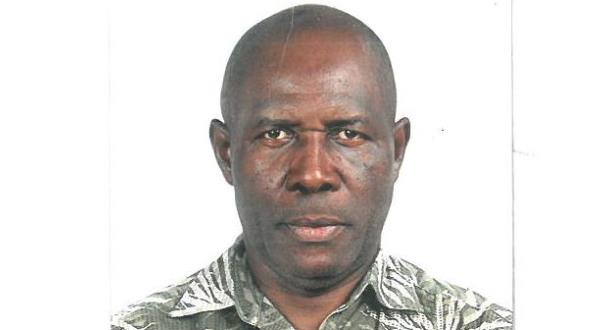General News
What the Security Needs to Fight Terrorism

By Andrew Aroh
During this time of increased use of commercial satellite equipment and services, internal and market changes are surfacing.
Gone are the days of mere satellite capacity for non-secure communications.
Now, companies looking to do business with the security are being called upon to set up baseline standards that work towards solving security requirements and expand services into new areas like terrorism.

A blue print is required:
We need to establish a baseline understanding that we are going to have assured access to commercial satellite communications.
One problem with commercial satellite operators is this unwieldy gaggle of entities that we have to deal with at the various satellite companies.
The emphasis is on streamlining procedures to act as a catalyst to the security to increase its use of commercial SATCOMS end-user terminals and transponder time.
In addition to better procurement procedures, there has been a growing emphasis on reliability of product-basically if it is found to be unreliable, is not worth procuring, since lives can literally be at stake.
Given the current war climate, more efficiency within the procurement cycle among the satellite equipment and services providers will be paramount. SATCOM professionals are by this means urging those government officials in charge of procurement to tighten the noose on current leniency measures offered to the contractors. We are promoting an acquisition policy environment that fosters efficiency, flexibility, creativity and innovation when approaching the bidding, contracting and use of commercial satellite services.
The question is what is the number of security requirements that the commercial SATCOM sector can meet in order to make the security/commercial purchasing process easier some of these include:
- Setting up single capacity arrangements whereby the security is enabled to lease spares and excess capacity quickly and hardware that is easy to use
- More reliability and maintainability of end-user equipment
- Commercial spectrum support on issues nationally and internationally
- Transition to new technologies as new innovations and efficiencies are offered by the commercial sector
- Both the security establishment as well as commercial satellite communication operators can benefit from a firmer partnership in the future as it relates to infrastructure changes and service upgrades. One such upgrade/change can now be seen within the arena of fighting terrorism.
- Who is going to pay for better security:
When it comes to the war on terror one thing is for certain: satellite must be reliable and robust enough to protect vested interests. Satellite can provide reliable telecom channels and distribute time-critical data fast.
But even though the government recognizes the integral role satellites play in fighting the war on terror, some on the commercial side say more is needed from the military side. On a broader scale, any safeguards installed to enhance national security will end up improving all aspects of life.
The caveat, however, is that the space & satellite industry cannot pay for all of this itself. Now, while there is a push from the commercial sector for the military to become a more lucrative customer, counting on the government to be a business saving cash cow is not a smart strategy. So what should space & satellite companies do?
One option is to convince state and local governments to band together into buying consortium, so they are big enough to purchase satellite services.
Another option is to convince these same levels of government to start using mobile satellite system services [MSS], so they can integrate them into their day-to-day lives. This is the most powerful option as it charts the way for the future all over the world. SSPI Nigeria is standing by to lend a hand in this respect.
- Further educating the security sector:
The commercial satellite industry is, however, steading gaining ground in terms of increasing the awareness of key decision makers both in the federal government and in the local government sector of the significant role that satellites can play in combating terror still, much needs to be done in getting the message out and understood by those who make the procurement decisions.
SSPI NIGERIA will be doing a lot more in terms of outreach and education this year. It is important that this knowledge about satellite technology be widely understood by personnel at local and regional government levels. We see local officials nationwide as shackled by a lack of SATCOM expertise and overwhelmed by all the unsolicited proposals they have piled on their desk.
The problem is a relatively uneducated community in need of a course in satellite 101 which covers hubs, remote and space segment mapped to a terrestrial infrastructure with mobile outreach capabilities.
What is going to work here? The public safety community is swamped by the range of capabilities and thus is finding it hard if not impossible to answer this question.
Because of the importance of the space & satellite industry to our nation, we recommend that steps be taken to promote appropriate revisions to existing policy and the development of new policy regarding security offered by satellite systems, to ensure that federal agencies appropriately address the use of commercial satellites, including the sensitivity of information, security techniques and enforcement mechanisms.
In addition, we are recommending that commercial satellites be identified as critical infrastructure sector [or as part of an already identified critical infrastructure sector]in the national critical infrastructure strategy, to help ensure these assets are protected from unauthorized access and disruption.
We assert that satellite specific language is inserted into the ongoing legislation revisions on the current policy regarding security offered by satellite.
In fact, language scripted within new guidelines need to put more emphasis on describing the user needs in terms of capabilities rather than technical or engineering parameters and providing an opportunity for mid-phase assessment of design maturity by adding a review segment to the project process.
Whatever the future brings, one thing will remain certain: commercial satellite technology and service will continue to play an integral part in government operations. Making the process more streamslined and efficient from bidding to actual service, however, is where near-term emphasis will remain.
In addition to establishing a working business baseline of procedures, there are some specific needs that must be fulfilled.
Given the current global war/polices climate, the security need to increase its space segments procurements.
We really need to know where we are going when it comes to communication oversight and any coordination of space & satellite communications. This remain to be seen. We want language that signals the government wants agencies like NEMA to quickly stream line and simplify any and all resource acquisition procedures for the states. Making interoperable communications gear available-including satellite gear need to be a high priority.
Limited state budgets in many instances simply do not allow for any widespread implementation of satellite technology. Will the threat of bioterrorism and nuclear devices alter this situation? Will an office of emergency satellite communications be created? Or will the existing set of plans overseen as part of the national communications system suffice?
Avoiding any unnecessary and burdensome expansion of infrastructure is priority as well. The real objective is meeting the critical communications needs of the end-users, whether we are talking about first responders, emergency management coordinators or the general public.
Note that emergency SATCOM is not an exotic solution. It should be available for instantaneous use in every state and its local governments.
Remember that we are into a new era of quick response modes, often greatly enhanced by commercial communications satellite technology.
There are three areas where commercial SATCOM technology can significantly play a role: communications, remote sensing and data information services such as weather.
Ubiquitous satellite communications and unlimited bandwidth seemed the destiny of the world.
In addition to widening the bandwidth for security customers, informational satellite image produced by the commercial imaging companies is yet another venue where stronger security/commercial synergies can prove profitable.
The security sector in terms of geospatial and imagery information products and services is growing. The key driver in the budget growth right now is the commercial remote sensing industry coming online.
The Future:
The appropriate role of the government in facilitating commercial space businesses naturally is an ongoing debate. Whether the debate more closely focuses on enhanced communications secure-specific satellite programs or intelligence, surveillance and reconnaissance (ISR) information products remains to be seen.
Therefore,
I believe that the security and the commercial satellite communications arena are linked together at the hip during our lifetimes
However, commercial satellite will always have that reach-back capability that is vital for successful communications.
It is a good thing that the federal government recently launched military coordination center at Abuja. The ICT in place is satellite-based.
But we have always focused attention at the federal level.
WHAT ABOUT THE STATES AND THE LOCAL GOVERNMENT LEVELS?
A lot still remains to be done at these levels. This is the time to act to create that required national awareness at the grassroot level.
IF THE PRESIDENT’S NATIONAL SECURITY TELECOMMUNICATIONS ADVISORY COMMITTEE IS FORMULATING ANYTHING RESEMBLING A SATELLITE SPECIFIC AGENDA (NOT JUST BY ESTABLISHING A CO-ORDINATION CENTER) WE HAVE YET TO DETECT IT. A LOT OF ARROWS ARE POINTING IN THE DIRECTION OF A MORE INTEGRATED APPROACH TO EMERGENCY SATCOM.
General News
NBA Africa Urges Entrepreneurs to Apply for Funding

NBA Africa, the local affiliate of the NBA basketball brand in the US, has announced the second edition of Triple-Double: NBA Africa Start-up Accelerator, which aims to promote the continent’s technology ecosystem and the next generation of entrepreneurs.

The NBA Africa Startup Accelerator will strengthen Africa’s technology ecosystem by providing mentorship and investment to the next generation of African tech entrepreneurs.
The organisation announced the initiative would once again be administered by ALX Ventures, a technological incubator that equips the continent’s innovators in technology with the knowledge and tools they need to develop and scale their enterprises.
Furthermore, NBA Africa named ServiceNow, an AI platform for business transformation whose Now Assist and AI agents help organisations in delivering ‘faster and smarter experiences’ at scale, as an official program partner.
The organisation stated that startups can apply to participate at tripledoubleaccelerator.nba.com until Friday, August 29, following which the applications will be filtered down to a top 10 list.
The shortlisted startups will then participate in a 10-week mentorship program, where they will be paired with mentors from NBA Africa, ServiceNow, and ALX leadership, as well as other corporate stakeholders, who will advise the companies on product development, business growth, and go-to-market strategy.
The finalists will next present their technologies to international industry professionals at the program’s second Demo Day in December, when the top five prize-winning companies will be chosen to receive financial assistance and mentorship.
“Last year’s inaugural Triple-Double Accelerator program showed how much talent, passion and creativity there is among African entrepreneurs who are shaping the future of the continent’s rapidly growing sport and entertainment industries,” said NBA Africa CEO Clare Akamanzi. “We look forward to reviewing this year’s submissions and to helping another round of promising startups take the next step in their development.”
Last year, almost 700 early-stage African entrepreneurs applied to the program.
Ten finalists were then chosen to pitch their products to a panel of international industry leaders at the program’s first Demo Day, which took place at the NBA headquarters in New York City.
Four prize-winning companies – Festival Coins (Nigeria), Salubata (Nigeria), HustleSasa (Kenya), and UBR VR (Egypt) – were awarded financial support and mentorship.
General News
Customs Ditches Fast Track Scheme for Authorised Economic Operator

Nigeria Customs Service (NCS) is transitioning to its Authorised Economic Operator (AEO) Programme, meant to ease trade processes, after over a decade under the Fast Track Scheme.

The service is racing to meet international best practices under the World Customs Organisation’s (WCO) SAFE Framework of Standards, and contained in Sections 108 to 111 of the Nigeria Customs Service Act, 2023.
The programme, the Service said, is expected to reward “trusted traders” who meet specified “compliance, financial, and security criteria.”
Approved operators will benefit from “pre-arrival clearance, minimal inspection, expedited release, and possible mutual recognition with other customs administrations.”
“The scheme is also designed to build trust, ensure cargo integrity, and enhance the predictability and transparency of Nigeria’s import-export operations,” the Service said.
The current Fast Track Scheme, implemented by the Service in 2013 under a more limited eligibility model and was upgraded to an online-based model called Fast Track 2.0, introduced in 2023. The scheme will be officially decommissioned on 31 December 2025.
“All beneficiaries currently enrolled in the Fast Track Scheme are mandated to initiate their migration to the AEO Compliance Programme by submitting their applications through the dedicated portal,” Customs said, adding that only companies approved under the AEO Programme will continue to enjoy trade facilitation privileges previously accorded under the Fast Track scheme.
“AEOs may include manufacturers, importers, exporters, brokers, carriers, consolidators, intermediaries, ports, airports, terminal operators, integrated operators, warehouses, distributors and freight forwarders,” The Service wrote in a handbook.
It requires that an applicant for AEO certification must be an Economic Operator in the international supply chain.
It also added that “The applying entity must be registered with the Corporate Affairs Commission (CAC), with a registration period of at least 5 years for AEO Security and Safety (AEO-S) and a minimum of 3 years for AEO Customs Simplification (AEO-C).”
The company must hold a valid Tax Clearance Certificate, with a minimum coverage of 5 years for AEO Security and Safety (c) and at least three years for AEO Customs Simplification (AEO-C).
The company must also provide an audited financial report for a minimum of five years for AEO Security and Safety (AEO-S) and at least three years for AEO Customs Simplification (AEO-C).
Relevant operational licences must also be provided alongside other relevant regulatory certifications (ISO certifications, SON, NAFDAC, etc.).
AEO-S applicants must also require ISO 28001–an international standard that defines the requirements of the Supply Chain Security Management System and provides a management model for organisations seeking to implement it.
General News
NOA Warns of Fake N1000 Notes in Circulation, How to Identify Them

National Orientation Agency (NOA) in Kwara has cautioned the public on fake N1000 notes circulating in the state.

Alhaji Abdulganiyu Dare, state director of NOA, disclosed this in a statement issued in Ilorin.
Dare emphasised the need for vigilance among residents and business owners in the state.
According to him, there is confirmed intelligence reports of syndicates flooding the area with counterfeit currency with batch numbers 364232 and 898248.
Dare said the counterfeit notes can be identified by their blurred portraits, watermarks, and irregular security features.
He urged the public to be cautious when handling large sums of money.
“The syndicates behind this crime exploit peak commercial hours in major local markets to carry out transactions with counterfeit notes.
“They target unsuspecting POS operators and merchants by defrauding them of their hard-earned money.
“NOA Kwara Directorate is committed to sensitising the public on the dangers of fake currency and the importance of verifying the authenticity of banknotes.
“The agency is working tirelessly to ensure that residents of Kwara are protected from financial scams,” he said.
While describing the crime as unpatriotic and capable of distorting the Nigerian economy, Dare said NOA would work closely with security agencies to bring the culprits to book.
The director advised residents to report any suspicious transactions or individuals to the authorities immediately.
“Together, we can build a safer and more secure financial environment for all residents of Kwara.
“By working together, the NOA and the public can prevent the circulation of fake currency and protect the financial interests of Kwara residents,” he said.

 General News3 days ago
General News3 days agoNOA Warns of Fake N1000 Notes in Circulation, How to Identify Them

 Telecom3 days ago
Telecom3 days agoMTN @ First-ever CED, Pledges to Address Subscribers’ Concerns

 E-Financial3 days ago
E-Financial3 days agoWest Africa Emerging as Crypto Adoption Epicentre- SEC Boss

 Telecom2 days ago
Telecom2 days agoNCC to Sanction Operators over Regulatory Violations

 General News3 days ago
General News3 days agoNCC, IHS Towers Lead Others To NITRA-ALTON CNII & Telecom Sustainability Conference 2025

 Telecom3 days ago
Telecom3 days agoAirtel Nigeria Raises Infrastructure Spending to $39m

 General News2 days ago
General News2 days agoCustoms Ditches Fast Track Scheme for Authorised Economic Operator

 Broadcasting3 days ago
Broadcasting3 days agoGovernment of Ghana Slams MultiChoice, Insists on DStv Price Cut















